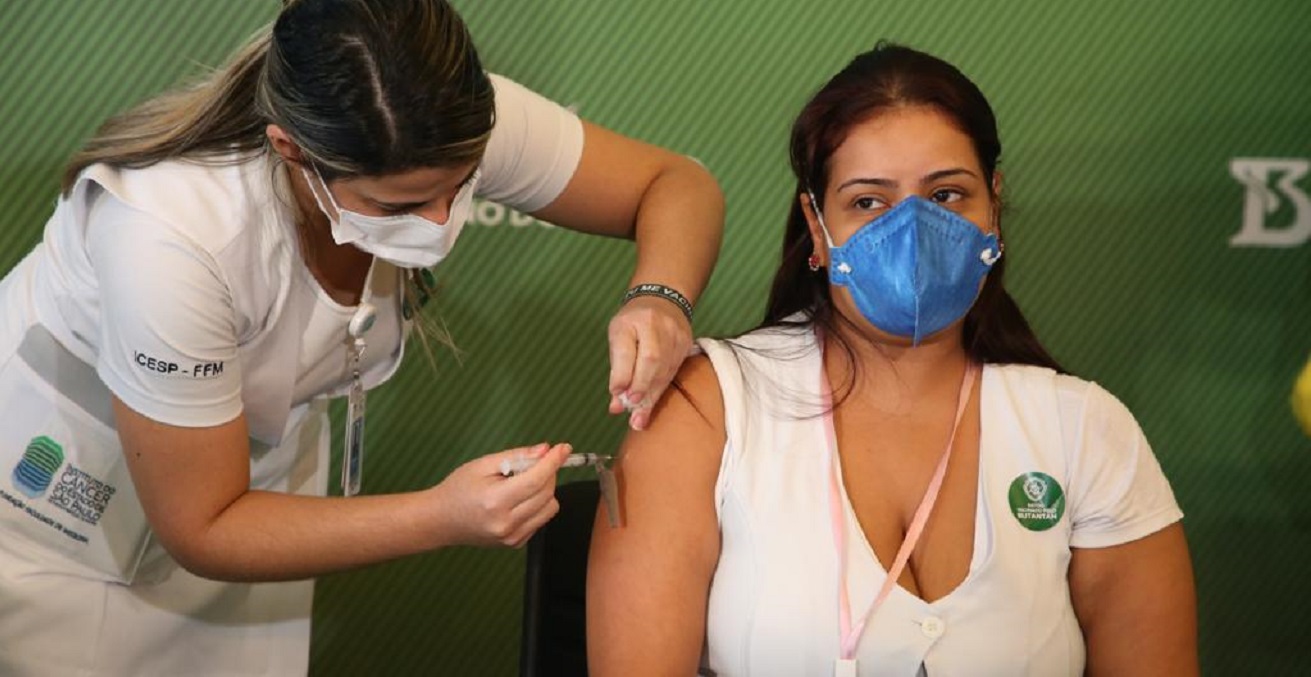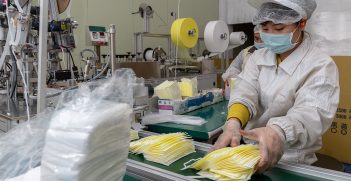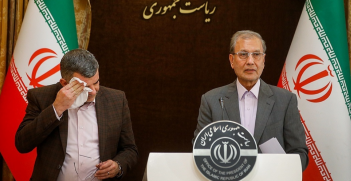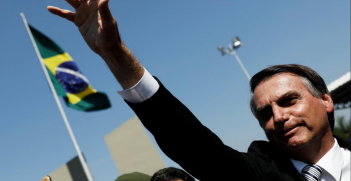Brazil’s Coronavirus Debacle: Pandemic Chaos amid Fears of Democratic Rupture

Brazil is one of the worst-hit countries by the pandemic, with the second-highest death rate, trailing behind the US. The death toll has reached 500,000, bringing the COVID-19 tragedy to the fore of the international political debate.
Brazil’s president, Jair Bolsonaro, stubbornly played down the risks presented by the pandemic, calling it “a little flu,” and to this day relentlessly challenges the use of masks and social distancing measures. Predicted concerns on the lack of effectiveness of herd immunity, and the dangers associated with an untamed pandemic have proven correct. A year and a half since the beginning of the greatest global health crisis in this generation, new variants continue to emerge, such as the Delta variant in India. Experts believe the Delta variant is already carrying a new mutation, making the New Delta variant even more transmissible. New coronavirus variants not only are more transmissible, but more deadly as well. These variants pose greater challenges to the swift production and delivery of vaccines for millions worldwide, increasing pressure on governments and health practitioners. Brazil lacks a comprehensive national immunisation strategy. Based on Brazil’s States Health Departments data, the country has a sluggish immunisation delivery. Only 33.31 percent of the population has received the first dose of the vaccine, with a timid 11.95 percent receiving the second jab.
Bolsonaro’s ideological alignment with former US President Donald Trump, his views on China – of a communist and globalist Chinese conspiracy – as well as his disregard for the World Health Organization’s guidelines on state-led lockdowns compromised Brazil’s response to the pandemic. Brazil still lacks a national coronavirus strategy, which has had a devastating impact on Brazil’s number of deaths and the effectiveness of its vaccination rollout. With Brazil’s most recent spike in coronavirus deaths, there is increasing pressure on Bolsonaro’s accountability, with calls for his resignation. But how strong is Bolsonaro’s opposition, and in the current political environment, can democracy prevail? Or will it wither and die?
Protests against Bolsonaro: A sign of hope?
With coronavirus cases and death rates reaching new heights, Brazil’s congressmen launched a Coronavirus Parliamentary Inquiry (CPI) looking into the causes of the out-of-control pandemic. The CPI investigates Bolsonaro’s handling of the pandemic, state responses to the pandemic, Brazil’s health ministers responses, whether the incumbent administration has intentionally led the country into public health chaos, as well as if there were any irregularities to obtain India’s coronavirus vaccine, Covaxin. Ideological clashes with Bolsonaro led to the resignation of two health ministers within one month. Luis Henrique Mandetta and Nelson Teich, both medical doctors, disagreed with Bolsonaro’s posturing towards social distancing, criticism of state lead lockdowns, and the use of hydroxychloroquine to treat coronavirus patients. There is no assured medical evidence that this drug can prevent infections or heal coronavirus patients.
The third health minister since the start of the pandemic was General Eduardo Pazuello, who had no medical training. His handling of the pandemic and vaccines distribution is currently being investigated by the CPI, which led to his resignation. Despite Pazuello’s health management debacle, Bolsonaro appointed him as secretary for Strategic Studies of the Secretariat for Strategic Affairs of the Presidency of the Republic, showing his unwavering support to the general. Brazil’s fourth health minister, Dr Marcelo Queiroga, is a Brazilian cardiologist and not a Bolsonaro loyalist.
With a spike in coronavirus-related deaths, a sluggish immunisation roll out, and a crippling economic recession, Brazilians recently took the streets calling for Bolsonaro’s resignation amid chants of #forabolsonaro (out Bolsonaro). These nationwide protests were supported by left-leaning politicians, with protesters chanting against the increased meddling of the military in the Bolsonaro administration, with calls for impeachment. But can Bolsonaro be held accountable in the current political climate?
The increasing politicisation of Brazil’s military and fears for an institutional rupture
Amid Brazil’s coronavirus chaos, a matter of increasing concern is Bolsonaro’s attempts to concentrate powers and the steady politicisation of Brazil’s military. Early this year, Bolsonaro reshuffled his cabinet after a failed attempt to pass legislation expanding executive powers during the pandemic. If approved, this new law would have significantly expanded the powers of the Brazilian president, operating similarly to martial law. In such a case, the president could directly interfere in public as well as private affairs, with powers to take hold of public property and to command civil and military forces to act on behalf of the federal government. The new minister for defence, Walter Souza Braga Netto, is a Bolsonaro loyalist and represents far-right ideals within Brazil’s military. Braga Netto’s appointment signals a trend towards the politicisation of Brazil’s military, particularly of those of lower ranks.
Since then, Bolsonaro has signalled his political alliance with parts of Brazil’s military. Early this year, General Pazuello joined president Bolsonaro in a political demonstration. According to Brazil’s army regulations, military officers cannot participate in political manifestations, ensuring the separation between military affairs from civil society. Astonishingly, leaders of Brazil’s army filed Pazuello’s disciplinary proceeding, contending “there was no transgression.”
Pazuellos’ lack of punishment increases concerns about the meddling of the Bolsonaro administration with the military, consolidating a trend towards the politicisation of Brazil’s military. In a recent interview with Brazil’s political magazine VEJA, Superior Militar Tribunal president-general Luiz Mattos declared “those attacking the government” are “tightening the rope,” alluding to recent anti-Bolsonaro protests. In his view, criticism toward the incumbent administration might lead to a military-led rupture of Brazil’s democratic institutions.
Brazil has a widely polarised society. Bolsonaro’s ongoing attempts to concentrate powers, as well as the politicisation of Brazil’s military, are creating pockets of resistance from his authoritarian push, as seen in the #forabolsonaro movement. Bolsonaro is a well-known apologist of Brazil’s military regime and never shied away from it. This, coupled with conspiracy theories and the support of his base and the military, might create a political climate for a democratic rupture.
The eyes of the international community will be upon political developments in Brazil’s 2022 presidential race. Bolsonaro’s attempts to concentrate powers amid the pandemic, as well as previous criticism of Brazil’s electronic voting, are signalling to similar turn of events to those witnessed in Washington DC with the Capitol invasion. If Bolsonaro’s re-election bid is frustrated, we might see a Trumpian-style “invade Brasilia” movement emerging in Brazil’s capital city.
In a country marred by authoritarian militarism and weaker democratic institutions than the US, this might be an irreparable blow to Brazil’s democracy. Next year’s presidential race will be a political crossroads with seismic implications: it can lead Brazil towards a more robust civil society and democratic framework, or to its annihilation, with a recalibrated form of authoritarian militarism. Let’s roll the dice.
Flavia Bellieni Zimmermann is a Teaching Fellow and Doctoral Candidate in Political Science and International Relations at the University of Western Australia. She holds a Bachelor of Laws with First Class Honours from the Pontifical Catholic University in Rio de Janeiro and a Graduate Diploma of International Relations and Security Studies from Curtin University, Western Australia. She is a Brazilian political analyst and has written extensively in this field. Her research interests include Brazilian politics and society, Latin American politics, populism and nationalism, women in the global south, gender, politics and religion.
This article is published under a Creative Commons Licence and may be republished with attribution.





